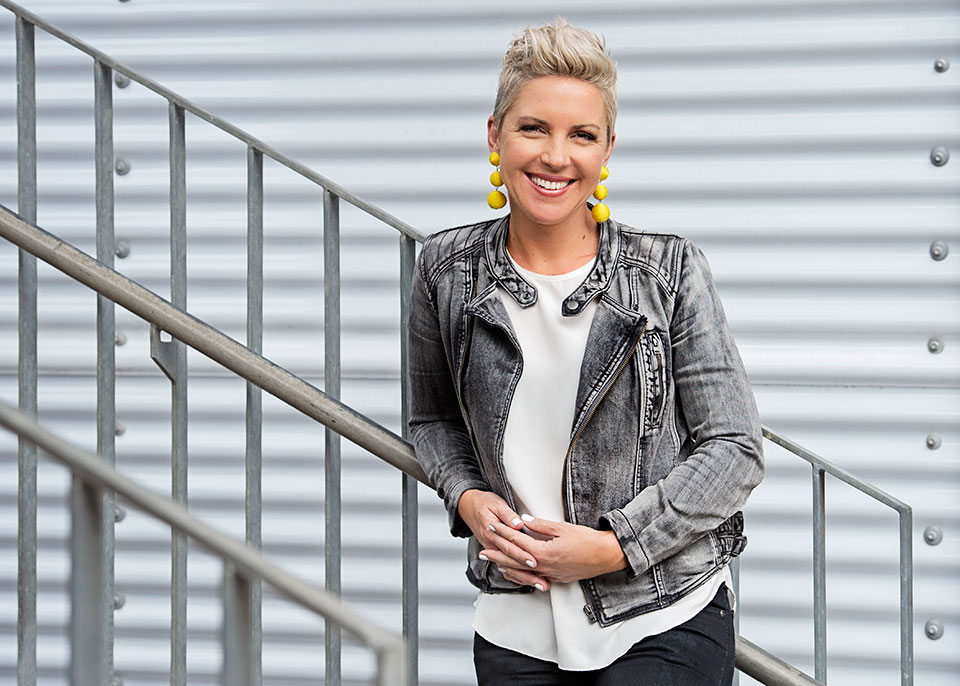Should we go back to the office?

- The conversations are hot, and as leaders we’re well and truly in the debate.
- Should we have our people go back to the office, or not? Is it time that we go back to the way we used to ‘do’ work? Or if we do extend our flexible approach we’ve been adopting since COVID what do we have to plan for?
It’s a challenging conversation, there’s no doubt about it. This type of discussion brings up plenty of long-held beliefs around work, complex questions, and headache-inducing scenarios of how we should structure our teams for the future of work.
Having this kind of decision on your shoulders can weigh you and your fellow leaders down. We’re here to help lift the load and give you some relevant talking points to consider.
Let’s get straight to it, shall we?
Should we go back to the office post-COVID-19? Let’s discuss.
Does it make sense for your entire organisation to all go back to the office?
One of the most important questions to ask in this conversation is if we’ve defaulted into a ‘one-in, all-in’ style of thinking. Sure, there may be entire departments that need to be able to perform their role duties in manufacturing, retail, healthcare sectors (to name a few) that require a hands-on approach. Where the work is location-centric individuals have already been navigating this transition.
But, what about the rest of your organisation? What about administrative departments, marketing departments, operations departments, and the like. Perhaps they don’t need to go back to the office full-time – maybe a split between office and home is an alternative that might produce better results for the organisation and for the employee.
To help us consider if a shift back to the office is worth the effort, its important that we consider what work used to look like.
Did your pre-COVID approach to work *actually* get you the results you require?
Thanks to our wonderful, incredibly complex human brains, we’re great at nostalgically reflecting on the past. These cognitive biases (halo effect and hindsight bias to name two) can often lead to us misrepresenting how great (or terrible) a situation was.
When you look back on engagement scores and culture surveys do they stack up to what you’re looking for in the future? There’s been a history spanning decades of hand wringing around low engagement rates and high presenteeism, it’s interesting to consider where your teams sat when co-located work was the norm. How could a hybrid approach support a greater level of engagement?
When reflecting on this, you may find that some areas of your business have improved since the move to flexible work. Various studies are finding interesting data emerging around knowledge workers and their productivity in hybrid work that make for a compelling case.
Perhaps your KPIs and reporting structures need to be adjusted as your business has changed due to the impacts of the global pandemic. Perhaps it’s far beyond reporting and platform and needs to be deeper challenges to the beliefs we hold about how work is done well that is the work we need to do?
For a hybrid approach to be successful, how might your business need to adapt and change in order to thrive in this new world of work? When you have a belief that it’s worth exploring, it’s amazing how many solutions reveal themselves to address what might have been previously seen as barriers. The fight for relevance into the future requires your courage as leaders to explore the possibility.
Did you have the right approach to flexible work, or is there more opportunity to grow?
You may be reading this and shaking your head – the remote work response of 2020 didn’t work for us – but we’re willing to bet that due to the fast-paced nature of the shift to remote work, last year meant you didn’t have the time, resources or knowledge to make the leap work as well as you’d have liked.
Heaped on top of this was the chaos and grief associated with all that happened over the last twelve months. The individuals that make up your team may be reeling from not being able to see family members, experiencing mental health challenges, and other equally as difficult scenarios.
Both these circumstances may have provided a tough environment for remote or flexible work practices to really perform at their best. But with a less traumatic and urgent timeline ahead, we have a chance to reset and build towards success better.
But perhaps you were one of the teams that did extraordinarily well in spite of those circumstances? Sure, we made some mistakes and it wasn’t perfect, but by-and-large we surprised ourselves on how we transitioned in a short period of time and stayed productive. Hat tips to you, but let’s not rest on our laurels either.
We’d recommend conducting an internal review across your teams to explore what areas of your remote work approach were well received, and which ones need to be improved. You may find that your team already has ideas of their own on how their experience of remote work could be improved. It’s time to ask them for their constructive feedback and input.
Build for the future of work, don’t fight for the past
So, are you going to go back to the office or not? Potentially it’s not a binary solution. Hybrid approach to work allows you and your leadership team to consider how work is done differently. Do we all really need to be together to move things forward? How can we connect from a distance? And when we do come together how do we make sure we make the most of our time together? These are the big decisions that face key decision makers in 2021. And simply, we’ve got to get it right to remain productive and relevant.
The future of work is calling, and this is your chance to pick up the phone and answer. What you choose will impact your organisation for years to come. Good luck. You’ve got this.
Written by Alison Hill.
Bring the best of the CEOWORLD magazine's global journalism to audiences in the United States and around the world. - Add CEOWORLD magazine to your Google News feed.
Follow CEOWORLD magazine headlines on: Google News, LinkedIn, Twitter, and Facebook.
Copyright 2025 The CEOWORLD magazine. All rights reserved. This material (and any extract from it) must not be copied, redistributed or placed on any website, without CEOWORLD magazine' prior written consent. For media queries, please contact: info@ceoworld.biz








